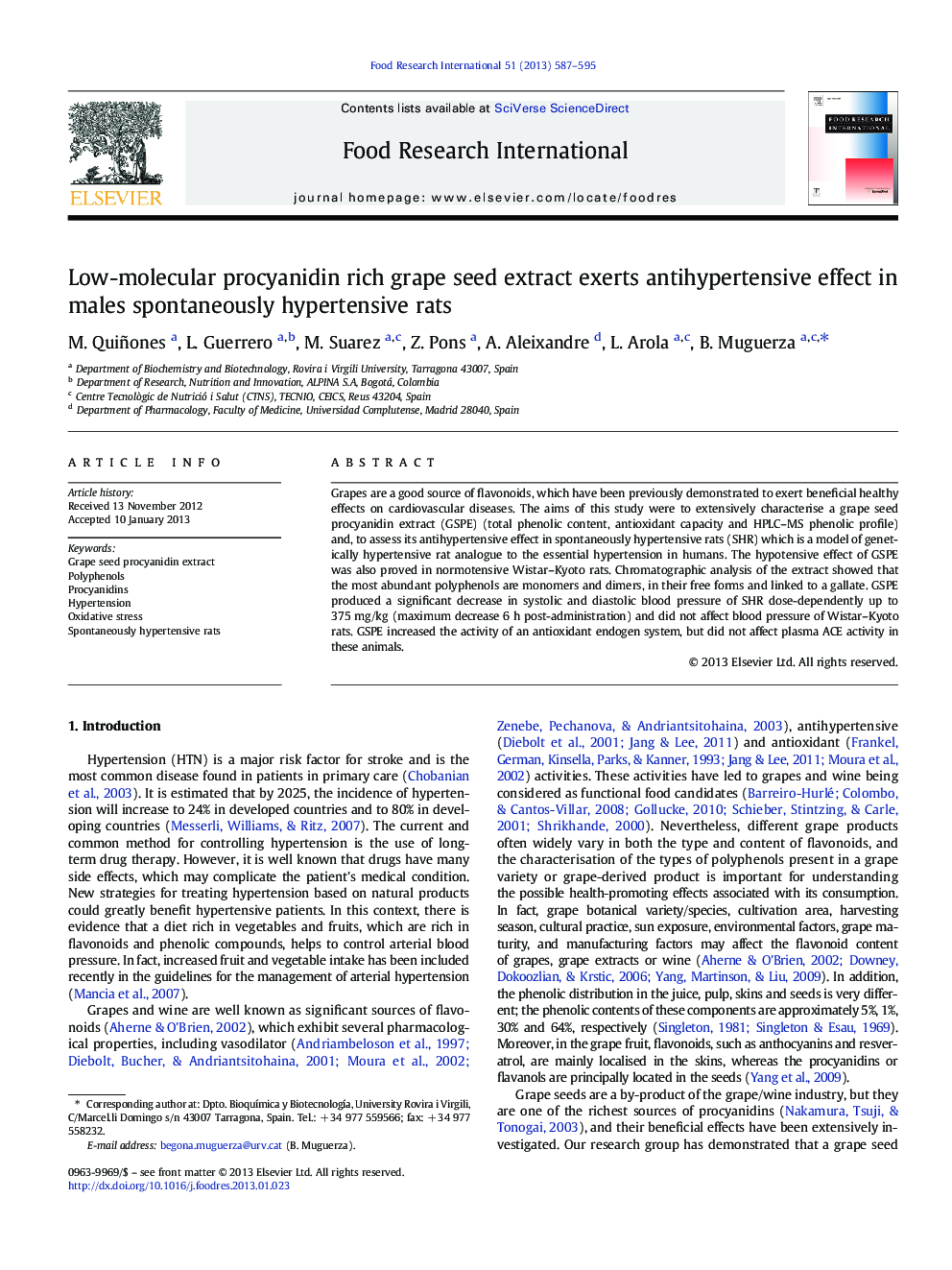| Article ID | Journal | Published Year | Pages | File Type |
|---|---|---|---|---|
| 6398026 | Food Research International | 2013 | 9 Pages |
Grapes are a good source of flavonoids, which have been previously demonstrated to exert beneficial healthy effects on cardiovascular diseases. The aims of this study were to extensively characterise a grape seed procyanidin extract (GSPE) (total phenolic content, antioxidant capacity and HPLC-MS phenolic profile) and, to assess its antihypertensive effect in spontaneously hypertensive rats (SHR) which is a model of genetically hypertensive rat analogue to the essential hypertension in humans. The hypotensive effect of GSPE was also proved in normotensive Wistar-Kyoto rats. Chromatographic analysis of the extract showed that the most abundant polyphenols are monomers and dimers, in their free forms and linked to a gallate. GSPE produced a significant decrease in systolic and diastolic blood pressure of SHR dose-dependently up to 375Â mg/kg (maximum decrease 6Â h post-administration) and did not affect blood pressure of Wistar-Kyoto rats. GSPE increased the activity of an antioxidant endogen system, but did not affect plasma ACE activity in these animals.
⺠GSPE decreases SBP and DBP on hypertensive rats, but not in normotensive rats. ⺠Maximum decrease of SBP at 6 h post-administration of 375 mg/kg GSPE. ⺠GSPE increases activity of reduced glutathione, an endogenous antioxidant system. ⺠GSPE is rich in monomers, dimers and trimers in free form or linked to gallate. ⺠ACE activity and malondialdehyde, biomarker of oxidative stress, was not modified.
